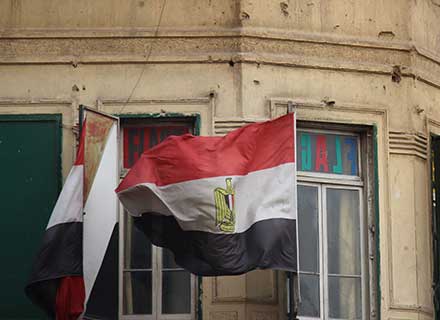As imports fell and earnings from tourism and the Suez Canal increased, Egypt’s current account went to a surplus in the April-to-June quarter, the central bank reported in October. This was the country’s second quarterly surplus in less than a year.
In the year leading up to March, Egypt’s currency depreciated by more than half, increasing the cost of imports. Import restrictions have been put in place to address a severe foreign currency shortage.
According to a statement from the central bank, the USD 557 million surplus offset a USD 3.49 billion deficit between January and March of 2023. Egypt’s first surplus in years was recorded from October through December 2022, totalling USD 1.40 billion.
From USD 17.55 billion in January–March and USD 21.30 billion in the same period in 2022, imports dropped to USD 16.18 billion this time around. From USD 9.55 billion in January–March and USD 11.44 billion in April–June 2022, exports decreased to USD 8.57 billion in 2019.
While Suez Canal revenue increased to USD 2.54 billion from USD 1.91 billion, tourism revenues increased to USD 3.32 billion from USD 2.55 billion in the corresponding quarter last year.
But from April to June 2022, remittances from Egyptians working abroad fell precipitously, to USD 4.63 billion from USD 8.29 billion.
Many Egyptians living abroad have been holding back their wages or selling them on the black market in Egypt because they fear that their country’s currency will devalue soon, according to analysts.
Trouble mounts further
Moody’s has now downgraded Egypt’s credit rating by a notch to ‘Caa1’ from ‘B3’, citing the country’s worsening debt affordability, amid the African nation’s record inflation and a chronic foreign currency shortage, and an ongoing eight-year borrowing spree, which has further made external debt repayments increasingly onerous.
“Moody’s expects the materialization of asset sale proceeds at the central bank to help restore the economy’s foreign currency liquidity buffer,” the credit rating agency said, placing Egypt’s outlook at ‘stable’.
The outlook reflects the agency’s expectation that Egypt will have continued access to official financial support from the International Monetary Fund under its USD 3 billion arrangement.
Egypt has imposed import restrictions to remedy the shortage of foreign currency, while at least two national banks have suspended the use of Egyptian pound debit cards outside the country to stop a drain on foreign currency.
The country, which is preparing for elections in December, devalued its currency by more than half in the year to March 2023.

